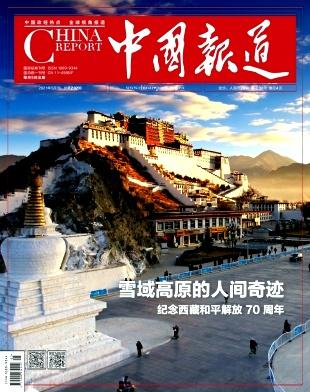性别治理:中国的妇女解放运动是否正在转向解决其遗留问题:“剩女”?
IF 0.7
Q3 AREA STUDIES
引用次数: 0
摘要
妇女日益追求教育、就业和经济独立,这无疑是中国妇女解放运动早期开始的影响,但也导致越来越多的妇女在婚姻伴侣问题上变得毫不妥协。此外,尽管男人总是在寻找长相好看、职业成功的女人,但他们总是不愿意嫁给教育程度或收入与自己一样多或更多的女人。因此,出现了一个新的女性类别,即“剩女”。本文探讨了她们产生的原因以及妇女解放运动在其中所起的作用。它还研究了管理机构在创建和传播这个词时所采取的行动,以及围绕这个词的污名,特别是指出了他们对“剩女”签证和“剩男”所采取的做法。它揭示了性别治理的父权制议程,在近年来扭曲和实际拖延中国妇女解放运动的背后。文章认为,随着官方对妇女解放和发展的叙述越来越迎合更传统、更重男轻女的价值观,中国政府在21世纪的妇女解放运动中正在发生彻底的转变。本文章由计算机程序翻译,如有差异,请以英文原文为准。
Gendered Governance: Is China Taking a U-Turn on Its Women’s Liberation Movement to Solve the Problem Left Over by It: ‘The Leftover Women’?
Increasing pursuit of education, employment and financial independence among women, which is undoubtedly an impact of early inception of women’s liberation movement in China, has nevertheless resulted in more and more women becoming uncompromising, when it comes to a marriage partner. Moreover, even though men are always in search for good looking and professionally successful women, but they are invariably unwilling to wed women with as much or more education or income than themselves. As a result, a new category of women, the ‘leftover women’ has emerged. This article explores the reasons behind their emergence and role played by women’s liberation movement therein. It also studies the actions taken by governing bodies in creating and propagating the term itself and the stigma around it, especially pinpointing the approach taken by them towards ‘leftover women’ visa-vie ‘leftover men’. It reveals the underlying patriarchal agenda of gendered governance, behind twisting and practically stalling the women’s liberation movement in China in the recent years. As the official narrative of women’s liberation and development is increasingly catering to more traditional and patriarchal values, the article argues, Chinese government is taking a complete U-turn in women’s liberation movement in the 21st century.
求助全文
通过发布文献求助,成功后即可免费获取论文全文。
去求助
来源期刊

中国报道
AREA STUDIES-
CiteScore
1.70
自引率
0.00%
发文量
9353
期刊介绍:
China Report promotes the free expression and discussion of different ideas, approaches and viewpoints which assist a better understanding of China and its East Asian neighbours. A quarterly journal of the Institute of Chinese Studies, it attempts to provide a fresh approach which goes beyond the strictly utilitarian area studies without becoming antiquarian. Launched in 1964, China Report has, over the years, widened its interests and aims and transformed itself into a scholarly journal that seeks a better understanding of China and its East Asian neighbours - particularly their cultures, their development and their relations with China. It is an indispensable source of information on China, its society and culture.
 求助内容:
求助内容: 应助结果提醒方式:
应助结果提醒方式:


